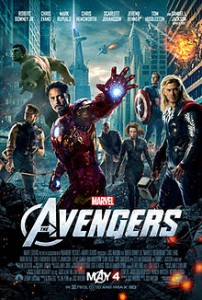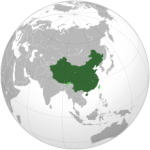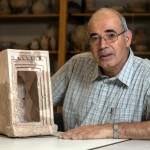 이름 means name in Korean.
이름 means name in Korean.
During my Korean class, we read a cultural section on Korean names where in Korea people have a closer relationship with their surnames because they can trace it to an identifiable ancestor. I had heard this before and became even more familiar with the concept upon watching Korean television dramas.
I know that generally last names in Korea are clan names – bon-gwan (본관). Not all last names are related though and one traces one’s name from the area in which the clan originated. So for example, the Gyeongju Kim and the Gimhae Kim are both Kims but not related. This is traced with the help of lineage genealogies called jokbo (족보). The aspect of clan and family name had some ramifications, as members of the same clan and family name are generally prohibited from intermarrying with each other no matter how far distant from the common ancestor. This is still considered a social no-no in modern Korea, although it was legally struck down in 1999.
This aspect of name and clan is not unique to Korea. It is also found in traditional China. I remember discussing with my students during my teaching days in Beijing many of these same topics. One also has to remember that these were generally upper-class issues in both Korea and China. The actual situation with last names in Korea are definitely more muddled. As Korea was a feudal society, the greater majority of the population were serfs without last names, I believe. They just chose their own as the society modernized. Also, in an attempt to raise money, in the final years of the dynasty the royal family sold their clan name to raise funds.
A second interesting point about Korean names is the use of dollimja (돌림자), in which every person in a clan’s generational level is given a similar name root so that one can quickly figure out how far down the generational chain on is from the common ancestor. A much better write-up of this is available at http://askakorean.blogspot.com/2010/10/still-more-about-korean-names.html. This is also common in traditional China.
So, what then about British (English, Scottish, Irish, and Welsh) names? I picked these because my ancestry, aside from a little French and German, comes from this area. Generally, people’s surnames come from three main sources – a person, a place, or a trade. Thus, McMahon means son of Mahon in Gaelic. Brooks lived along a brook or something. Smiths were generally blacksmiths, silversmiths, or such. The textbook is right, however, in that most people have lost the sense of how their surnames originated, unless they were clan or aristocratic names. I also notice the same problem about first names in the US wherein most people have no idea what they mean, which explains the popularity of baby name books.
What about my name?
Devon O’Neal Williams
I am particularly proud of my name. Mostly it is ego, but so what. One particular point about my name is that when people see my name, they think I am black. Nope, lily white as can be. This is because 46% of those who share my surname are African-American. Devon, said in a different way than I pronounce it, is generally a black first name. So, there it is.
Let my break it down for you. I am named after the county of Devon in England, which comes originally from the Celtic tribe Damnonii. This tribal name is usually translated as “dwellers in deep valleys” or some such. My middle name – that I received from my grandmother – is a eponym, meaning that I am named after someone. The O’Neal surname means grandson of Niall. This Niall is Niall Glúndub mac Áedo or Niall Black-knee, son of Áedo. He was a high king of Ireland in the 10th century and was a member of the Uí Néill clan. The Uí Néill traced their lineage from Niall Noígíallach, or Niall of the Nine Hostages, a legendary king of Ireland in the 5th century.
My last name is also rather interesting – Williams, or son of William. On the 2000 census, it ranked 3rd in the most common surnames. Most people have no clue who their original William was. I do as Williams is not my ancestral surname. My Williams comes from my great-great-grandfather, William F. Washburn (1846-1911), who after a dispute changed his name to Frank Williams. As you can see, my ancestral surname is Washburn, 1763rd most common surname in the US. The Washburn family derives its name from the town of Washburn in Gloustershire, England. The first person of that name was Sir Roger d’Washbourne, from whom I am descended. He was a 11th century knight of Norman ancestry and this area was his fief. Wikipedia notes that “the name comes from the Saxon for ‘from the flooding brook,’ with ‘wash’ meaning ‘swift moving current of a stream,’ and ‘burn’ referring to a brook or a small stream.” I will have to take their word for that.
 I was invited to this restaurant to meet up with some friends that I had come to know through our study abroad trip to Tianjin in 2009. I keep in touch rather regularly with Lisa using Gchat, but I had not seen or talked to Quincy since that trip. The setting for our reunion was a delightful place up near Sugarhouse at 21st South and 21st East. The owner knew Lisa since she was a regular visitor to this place.
I was invited to this restaurant to meet up with some friends that I had come to know through our study abroad trip to Tianjin in 2009. I keep in touch rather regularly with Lisa using Gchat, but I had not seen or talked to Quincy since that trip. The setting for our reunion was a delightful place up near Sugarhouse at 21st South and 21st East. The owner knew Lisa since she was a regular visitor to this place.
 This past week has been an eventful one. First, I finished writing a very rough draft of the introduction to my thesis that my Advisor praised a little. We discussed where I should be headed and she gave me quite a few insights that I can use in writing my thesis body. Luckily, quite a bit of it is already there because I did a great deal of it before my mental crap out in December 2010. I feel way more confident this time around than last time. I still have to control my impulses for procrastination and such, but I have a much better handle on how this is all going down.
This past week has been an eventful one. First, I finished writing a very rough draft of the introduction to my thesis that my Advisor praised a little. We discussed where I should be headed and she gave me quite a few insights that I can use in writing my thesis body. Luckily, quite a bit of it is already there because I did a great deal of it before my mental crap out in December 2010. I feel way more confident this time around than last time. I still have to control my impulses for procrastination and such, but I have a much better handle on how this is all going down.

 Recently, Prof. Karen King of Harvard University published a fragment on the internet that indicates that Christ was married. Written in Coptic, the language of Egyptian Christianity, it states, “Jesus said to them, my wife.” Unfortunately, because it is a small fragment, we do not know what Jesus actually said to them about “his wife.” At her blog The Forbidden Gospels, April DeConick correctly points out that this is not new news. We already had the Valentinian Gnostic Gospel of Philip that also hints at the marriage of Jesus.
Recently, Prof. Karen King of Harvard University published a fragment on the internet that indicates that Christ was married. Written in Coptic, the language of Egyptian Christianity, it states, “Jesus said to them, my wife.” Unfortunately, because it is a small fragment, we do not know what Jesus actually said to them about “his wife.” At her blog The Forbidden Gospels, April DeConick correctly points out that this is not new news. We already had the Valentinian Gnostic Gospel of Philip that also hints at the marriage of Jesus. 이름
이름  Ah, grad school – how I dislike thee, let me count the ways. A great many of my friends have been very encouraging of my return to the University of Utah to finish up my Master’s program. Thank you all for that I also am interested in finishing and getting my degree so that my life can have some forward momentum. My M.A. degree will be integral to achieving this. Plus, I don’t like to quit and leave things unfinished.
Ah, grad school – how I dislike thee, let me count the ways. A great many of my friends have been very encouraging of my return to the University of Utah to finish up my Master’s program. Thank you all for that I also am interested in finishing and getting my degree so that my life can have some forward momentum. My M.A. degree will be integral to achieving this. Plus, I don’t like to quit and leave things unfinished. I initially approached this series a little hesitantly. Working as a librarian when the movie was being released made it and its sequels hot items at the time. Despite recommendations from both co-workers and patrons, my level of enthusiasm was about nil. Two weeks ago or go I decided to finally watch the movie. I was very impressed. I find the dysotopian nature of this future a tad bit undeveloped, but the individual emotions that were brought out made a deep impression. The main characters of the Hunger Games performed by Jennifer Lawrence and Josh Hutcherson were great and gave added visual depth to the books when I read them. Woody Harrelson was cast in a role that suited him well as all of his roles seem to be high on something.
I initially approached this series a little hesitantly. Working as a librarian when the movie was being released made it and its sequels hot items at the time. Despite recommendations from both co-workers and patrons, my level of enthusiasm was about nil. Two weeks ago or go I decided to finally watch the movie. I was very impressed. I find the dysotopian nature of this future a tad bit undeveloped, but the individual emotions that were brought out made a deep impression. The main characters of the Hunger Games performed by Jennifer Lawrence and Josh Hutcherson were great and gave added visual depth to the books when I read them. Woody Harrelson was cast in a role that suited him well as all of his roles seem to be high on something. Ah, the Avengers. Like always, my frugal nature rarely allows me to spend money on something so frivolous as a movie ticket. Ok, the truth is that I am usually broke. This means that I often get to watch movies long after the rest of the world has moved on, with the only consolidation being that I can enjoy them in my own home with both bathroom and refrigerator close at hand. Plus, there is the almighty pause button. It is hard telling a theater full of people that the movie must be paused because you were shortsighted in not going to the restroom before curtain rise. Doesn’t work that way, does it?
Ah, the Avengers. Like always, my frugal nature rarely allows me to spend money on something so frivolous as a movie ticket. Ok, the truth is that I am usually broke. This means that I often get to watch movies long after the rest of the world has moved on, with the only consolidation being that I can enjoy them in my own home with both bathroom and refrigerator close at hand. Plus, there is the almighty pause button. It is hard telling a theater full of people that the movie must be paused because you were shortsighted in not going to the restroom before curtain rise. Doesn’t work that way, does it? Yesterday, I experienced that feeling of ineptitude that generally comes with the first day of class in a new language. A new alphabet and vocabulary to wrap myself up in and beat my head against the wall over. I had been glancing over the Korean alphabet haphazardly for a couple of months and have been amazed at the simplicity of it. I realize that looking at it from the first few times that it will not be as simple as it looks, but I have on rose-colored glasses from the decade or so that I have been memorizing Chinese characters.
Yesterday, I experienced that feeling of ineptitude that generally comes with the first day of class in a new language. A new alphabet and vocabulary to wrap myself up in and beat my head against the wall over. I had been glancing over the Korean alphabet haphazardly for a couple of months and have been amazed at the simplicity of it. I realize that looking at it from the first few times that it will not be as simple as it looks, but I have on rose-colored glasses from the decade or so that I have been memorizing Chinese characters. There were many times in China when the question was posed to me, “What do you like about China?” The answer to that was always easy for me. I love the people, the food, the culture, and the history. When I am feeling generous and am not beating my head against the wall in frustration, I can even admit to loving the language and its place – valued in ways both the same and different than I value my own mother tongue. As I said, this question was easy as I loved and love China. It was the inverse question that always made me uneasy, for it was always inevitable. I had a response, of course, but how does on say it tactfully in place where tact is an utmost virtue. However, I must answer honestly. What do I hate about China? The Government and the Party.
There were many times in China when the question was posed to me, “What do you like about China?” The answer to that was always easy for me. I love the people, the food, the culture, and the history. When I am feeling generous and am not beating my head against the wall in frustration, I can even admit to loving the language and its place – valued in ways both the same and different than I value my own mother tongue. As I said, this question was easy as I loved and love China. It was the inverse question that always made me uneasy, for it was always inevitable. I had a response, of course, but how does on say it tactfully in place where tact is an utmost virtue. However, I must answer honestly. What do I hate about China? The Government and the Party. Well, I thought that I would put up another update. I have finished off two of the three papers that I had left over from my last semester at Utah. I hope to finish the third one this weekend. I will be so happy to finish these idiotic things off – I should never have let them progress this far. Writing block, how I curse thee! Once finished, it will be time to focus on the dreaded thesis. I can only be thankful that I did as much work on it as I did before I folded.
Well, I thought that I would put up another update. I have finished off two of the three papers that I had left over from my last semester at Utah. I hope to finish the third one this weekend. I will be so happy to finish these idiotic things off – I should never have let them progress this far. Writing block, how I curse thee! Once finished, it will be time to focus on the dreaded thesis. I can only be thankful that I did as much work on it as I did before I folded.